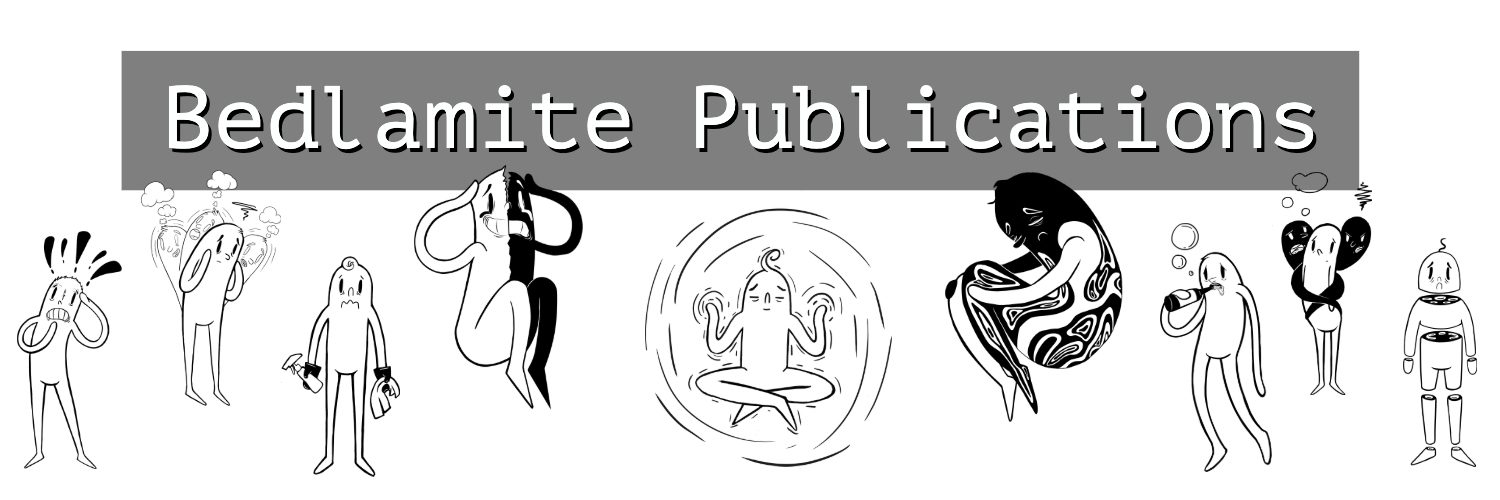Post-traumatic stress disorder (PTSD) is a type of anxiety disorder that causes flashbacks, nightmares, as well as avoidance behavior. While there are limitations to treatment, natural alternatives have come out in recent years as potential treatment options. One such option is using cannabis for PTSD.
Throughout this article, we’re going to explore cannabis, its impact on treating mental health disorders like PTSD, and whether it’s a viable option for those with the condition. At the end of the article, we’ll look at its legality and we invite you to ask your questions.
What is Cannabis?
Cannabis (or marijuana) is a psychoactive drug that is utilized for both medicinal and recreational purposes. It contains a number of compounds known as cannabinoids with the most notable being tetrahydrocannabinol (THC) as this causes a “high.” The cannabis plant breaks down into three kinds of strain varieties: Sativa, Indica, and Hybrid (a blend between the two). ¹
Most people smoke cannabis, but there are also many different ways to imbibe the effects of marijuana. These eating the plant through baked goods or candies, mixing it into teas, tinctures, vaping, and topical use.
What are Cannabinoids and Terpenes?
Cannabinoids are chemical compounds naturally found in the cannabis plant. Each has a unique effect on the body as they’re very similarly structured to endocannabinoids found within ourselves. The most common cannabinoids include THC, cannabdiol (CBD), cannabigerol (CBG), and cannabinol (CBN).
THC is the most notable for its psychoactive qualities which bind to the brain’s internal pleasure receptors, called cannabinoid receptors and activate them. This changes the way in which certain functions occur within the brain, such as learning, concentration, and performing complex or tasks. It also provides a generally euphoric or calming sensation within the body. ²
Terpenes are what give the cannabis aroma and flavoring. Terpenes are molecules that bind to the cannabis plant that gives it its unique aroma and aids in breaking down THC by providing different sensations. Such sensations include analgesic, anti-anxiety, and anti-inflammatory properties. Terpenes affect the taste, scent, texture, and a strain’s potential to treat certain conditions and health complications. ³
Indica or Sativa for PTSD?
When someone is discussing cannabis, they’ll often speak about certain strains and how they provide different kinds of effects. Strains usually have three classifications: they’re either Sativa, Indica, or they are a hybrid of those two strengths.
Each strain provides a different kind of “high” as well as smell, taste, and appearance. Sativas are more energized whereas Indicas are more relaxing. A hybrid is a blend of these strains and can sometimes either be Sativa-dominant or Indica-dominant.
When it comes to cannabis for PTSD, Indicas are generally suggested as they may be able to ease symptoms. However, some may find the Sativas to be more beneficial as they induce creativity.

How Does Cannabis Affect the Body?
When you consume cannabis, there is a natural change occurring in the body. The most impactful effect of cannabis occurs within the brain, where THC attaches itself to dopamine receptors. Dopamine is the chemical messenger within the brain and the body that aids in elevating moods and sending and receiving messages from the brain to the nervous system. ⁴
Beyond this, cannabis has a very natural effect within our bodies which is why so many use it. Within each of us is an endocannabinoid system (ECS) which creates chemical compounds similar to cannabinoids. When we consume cannabis, the plant’s compounds attach themselves to receptors and, in turn, produce effects.
Cannabis also helps in trying to combat certain complications like anxiety, sleep issues, nausea, and elevating mood. There’s evidence to show that cannabis with specific terpenes has anti-inflammatory properties which can help with easing pain. ⁵
Can You Use Cannabis for PTSD?
Since the expansion of accessible weed, more and more people are utilizing it for recreational purposes. That being said, people may be able to use cannabis to calm symptoms, such as anxiety, depression, paranoia, and PTSD.
Benefits such as being able to relax, have an increase in appetite, and control of their stress have been reported by those who use it medicinally. There have also been reports of those using cannabis to combat their PTSD-related symptoms having less aggressive responses to triggering events and circumstances.
What Does the Research Say?
While the U.S. has become more cannabis-friendly, it also allowed for an increase in research into the benefits and the effects cannabis use has on certain mental health disorders, like PTSD. Although we need more research to make any claims, studies have shown promise in cannabis’ ability to reduce stress, anxiety, and depression.
- A 2015 review found military veterans who used cannabis reported reduced anxiety and insomnia and improved coping ability. ⁶
- A 2016 study found that cannabis can lower the risk of PTSD, severe depression, and suicidal ideation. This is notable as PTSD holds the potential to promote depression and suicidal thoughts. ⁷
- A 2016 study found that drugs that interact with the ECS may help reduce PTSD symptoms following a memory extinction period. ⁸
- A 2018 study found that taking CBD immediately following a traumatic event could make it difficult for the brain to develop memories of said event. ⁹
It’s worth mentioning that one study found cannabis to be beneficial, but not nearly as effective as most assume. ¹⁰

Cannabinoids and Terpenes for PTSD
There are recommended medicinal cannabis strains for PTSD. While research is thin regarding specific cannabinoid and terpene combinations, certain strains may bring about the greatest possible outcome in trying to treat PTSD.
It’s recommended to use cannabis flower rather than concentrated oils or tinctures. The reason being that flower has an array of terpenesm flavanoids, and phytonutrients which may be lost in extraction processes.
These are the most widely agreed-upon best cannabinoids for PTSD relief: ¹¹
Sunset
Sunset is an Indica-dominant hybrid strain of cannabis. Its primary effects offer a relaxing, almost sedating, high. Sunset can help ease anxiety, which is a major reason it’s suggested for PTSD. It includes terpenes such as linalool, caryophyllene, and humulene.
Linalool has anticonvulsant, antidepressant, and antianxiety properties while caryophyllene and humulene has inflammatory and stress relief components.
Dakini Kush
Dakini Kush is an Indica strain, widely known for its relaxing high and its impact on treating pain, migraines, and combating anxiety. It contains terpenes such as myrcene, caryophyllene, limonene, and humulene.
Myrcene, which commonly found in mangoes and thyme, has antibiotic, anti-inflammatory, and sedative effects. Limonene, a terpene commonly in lemons, has mood-boosting effects as well having anti-inflammatory effects.
Zkittlez
Zkittlez is an Indica-dominant hybrid strain. Its contains terpenes caryophyllene, humulene and linalool. Zkittlez provides a creative, euphoric, and relaxed high that also helps in soothing anxiety and counteracting depressive feelings. The terpenes of this strain contain antianxiety and stress relief components.
Cannabis Side Effects and Safety
Like any medication, there are side effects that come with cannabis use. Most of these are tame in comparison to some of the more egregious side effects of aggressively prescribed medications. The most common side effects of medicinal cannabis are: ¹²
- Breathing complications. If you smoke, dab or vape cannabis, long-term and aggressive usage can result in breathing complications.
- Increased heart rate. Smoking cannabis can result in an elevated heart rate. For those with sensitive hearts and cardiovascular complications, it can heighten the chances of a heart attack.
- Intense nausea and vomiting. For those who are regular smokers, there is a chance of developing a health complication called cannabinoid hyperemesis syndrome. The disorder causes cycles of violent vomiting, nausea, and dehydration. If it progresses in severity, you may need emergency medical intervention. This is a rare consequence of long-term cannabis smoking but does occur in roughly 30% of self-identified long-term heavy cannabis smokers.
- Increase in anxiety and paranoia. This regularly occurs with those who are newcomers to cannabis but it can occur with those who use cannabis for a longer period of time.
As far as safety, there is an importance of utilizing cannabis for the right reasons. It’s vitally important to follow recommendations set by physicians and mental health professionals. Consuming too much cannabis can be detrimental to treating the disorder and may cause symptoms to become more severe.
If you find that cannabis itself doesn’t help with anxiety, you may want to look into CBD for PTSD.

Legality of Cannabis
Many states across the U.S. are legalizing marijuana for recreational and medicinal use. This has aided in furthering research into how cannabis could be beneficial for mental health disorders and complications in treating these conditions. However, there still exists some pushback and cannabis remains illegal on a federal level.
In states where cannabis is medicinally legalized, PTSD is usually a qualifying condition thanks to recent research. However, some states have limitations in their programs, such as the severity of PTSD and whether or not it’s treatment-resistant. We highly recommend researching your state’s program to learn more about how to obtain medical cannabis.
Cannabis for PTSD Dosage Recommendation
Researchers who’ve looked into utilizing cannabis for PTSD have found that the best dose is between 1.5 to 2 grams. That dosage guide breaks that down to about 2 to 4 joints per day. ¹³
However, you may find that a lesser amount of cannabis works best for you. To track changes in the wellbeing of the patient and interactions with other medications, it’s best for a physician to monitor cannabis use.
Final Word
PTSD can be an incredibly distressing mental health complication that can sideline someone from living their best lives. It’s understandable that someone would want to escape that polarizing mental health complication, however, it’s also vital to understand the best way to treat PTSD.
If cannabis is legal where you live and is a recommended treatment option, then you should give it a try. Cannabis has abilities to elevate mood, counteract negative mental health symptoms, and reduce pain and inflammation. Not to mention, research has shown it can be a powerful alternative for PTSD.
Your Questions
Still have questions about cannabis for PTSD?
We invite you to ask them in the comments section below. If you have any further knowledge on this topic – whether personal or professional – we’d also love to hear from you.
Reference Sources
¹ Alcohol and Drug Foundation of Australia: What Is Cannabis?
² National Center on Drug Abuse: How Does Marijuana Produce Its Effects?
³ CannaCon: What are Terpenes and How Do You Use Them?
⁴ National Center for Biotechnical Information: Marijuana and cannabinoid regulation of brain reward circuits
⁵ Liebert Publications: The Anti-Inflammatory Properties of Terpenoids from Cannabis
⁶ National Library of Medicine: Use and effects of cannabinoids in military veterans with posttraumatic stress disorder
⁷ SageJournals: Does cannabis use modify the effect of post-traumatic stress disorder on severe depression and suicidal ideation
⁸ National Library of Medicine (PubMed): The endocannabinoid system and Post Traumatic Stress Disorder (PTSD)
⁹ frontiers in Neuroscience: Cannabidiol as a Therapeutic Alternative for Post-traumatic Stress Disorder
¹⁰ PLOS ONE: The short-term impact of 3 smoked cannabis preparations versus placebo on PTSD symptoms
¹¹ VeriHeal: Preferred Cannabis Strains for PTSD
¹² National Institute of Drug Abuse: Cannabis Effects
¹³ Minnesota Department of Health: Cannabis Dosages for Qualifying Medical Conditions – Page 77

